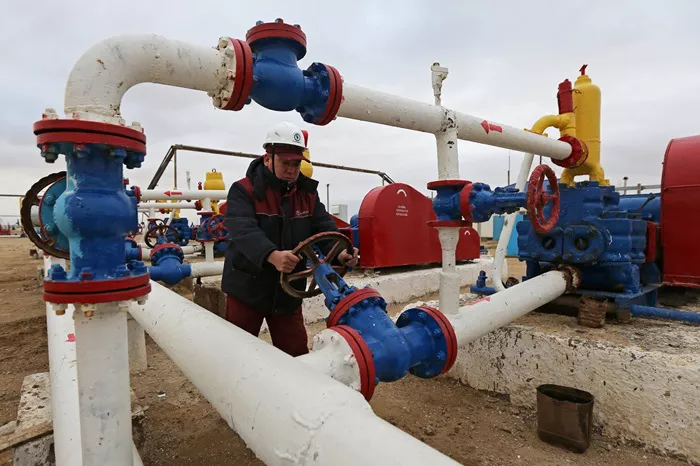Kazakhstan, often seen as a “rogue” member of the OPEC+ alliance, has once again exceeded its oil production limits, potentially escalating tensions within the group. Recent reports indicate that the country’s largest oil field, Tengiz, has reached record-high production levels this month.
Tengiz’s output surged to a staggering 699,999 barrels per day. This news follows a previous report highlighting a 10% increase in Kazakhstan’s total oil production for September compared to the August average, further surpassing the country’s OPEC+ quota. This increase occurred despite Kazakhstan’s submission of a plan to offset its production overages to the OPEC secretariat back in July.
At that time, Kazakhstan acknowledged overproducing by 620,000 barrels daily. While this figure is smaller than Iraq’s excess production of 1.1 million barrels, it still generated discontent among other OPEC+ members. The country was expected to compensate for this excess through additional production cuts until September of the following year.
In late September, it reported that Saudi Arabia might abandon its pursuit of unofficial oil prices at $100 per barrel for Brent crude. This shift signals a potential increase in Saudi oil production set for December 1, which could lead to a sharp decline in oil prices, resulting in financial losses for all OPEC+ members.
The challenge for OPEC and OPEC+ lies in reconciling the differing interests of its members. Countries like Iraq and Kazakhstan appear to prioritize immediate market share and high export volumes, while Saudi Arabia historically focused on maintaining higher long-term prices, even at the expense of market share. Should members continue to overproduce, including major ally Russia, Saudi Arabia’s reported plan to increase output would become justifiable, heightening internal OPEC+ tensions.
The original intent behind the formation of OPEC+ was to enhance price-setting power in the global crude oil market by regulating supply and demand. A fracture within the alliance could undermine that power, creating a fragmented market where individual nations compete against one another. Such a scenario would be particularly detrimental in an era dominated by algorithmic trading, which often prioritizes external factors like China’s economic performance and geopolitical developments over fundamental oil market dynamics.
Looking ahead, Kazakhstan’s oil production is expected to fall within its OPEC+ quota in October due to maintenance at the Kashagan field, which will reduce its output by 400,000 barrels per day. While this adjustment aligns with OPEC expectations, the maintenance period will conclude by December, forcing Kazakhstan to weigh its priorities: maintaining market share or fostering continued collaboration within OPEC+. Other OPEC members face similar dilemmas as Saudi Arabia prepares to ramp up production, potentially leading to a significant drop in oil prices unless an unforeseen production disruption occurs.
Related topic:

